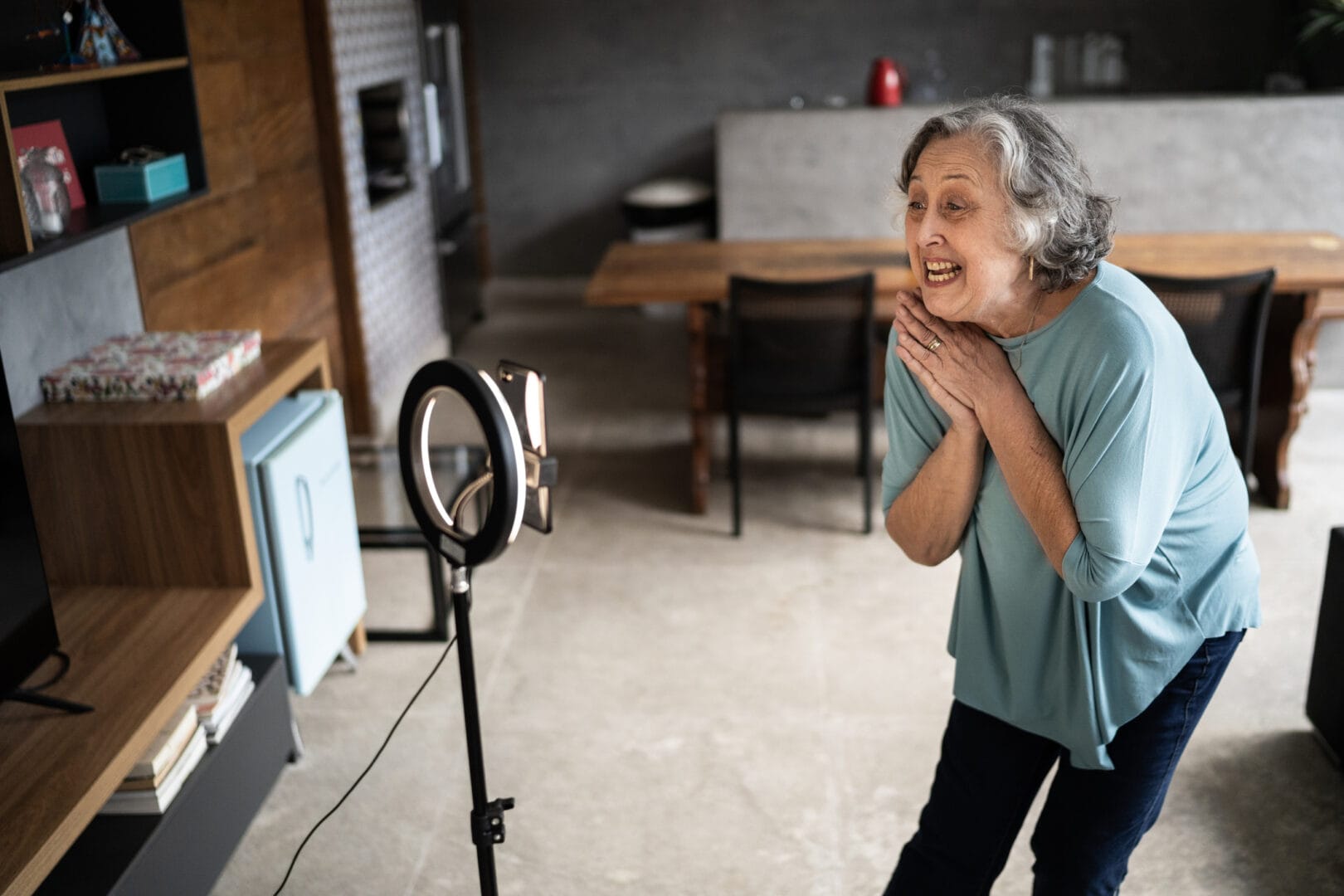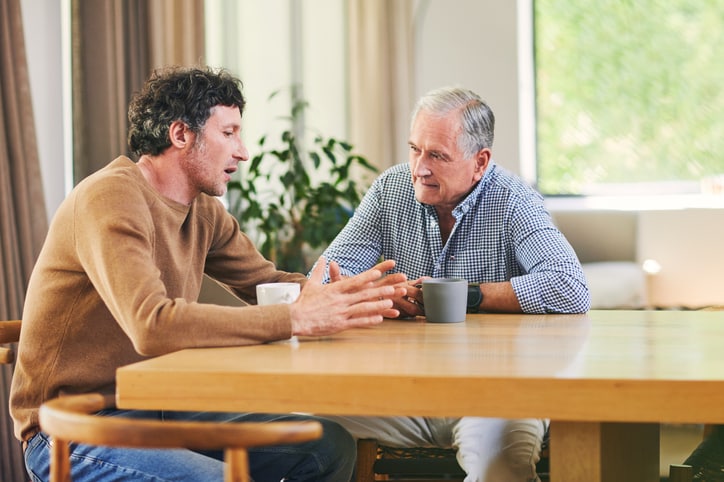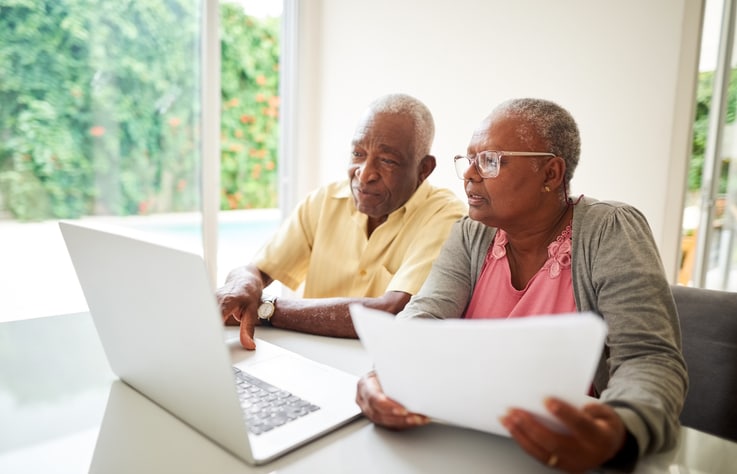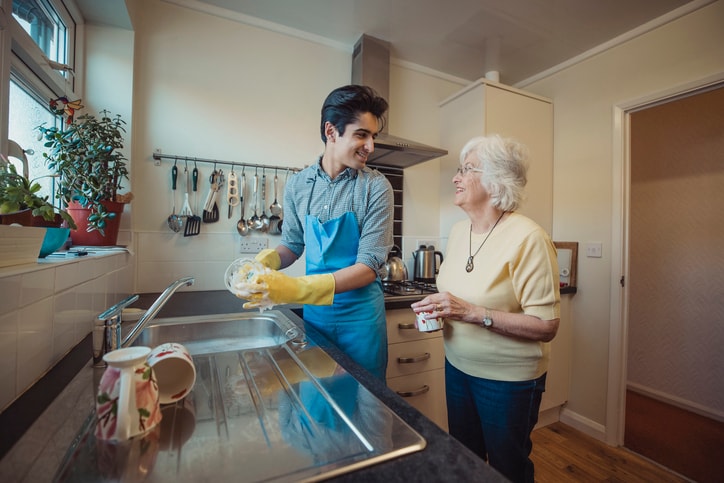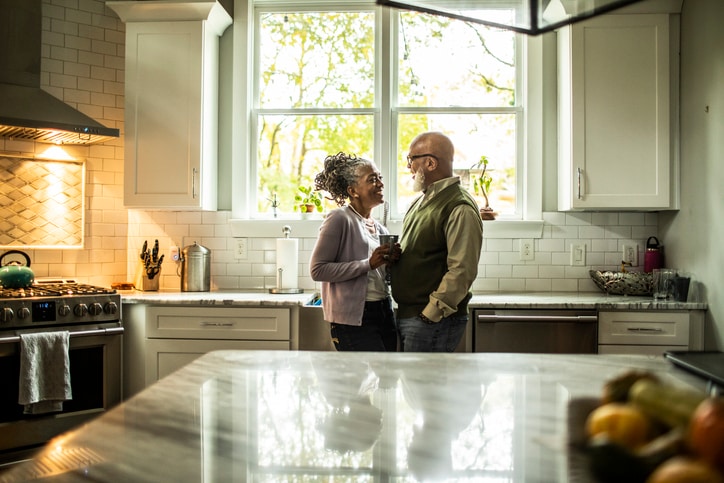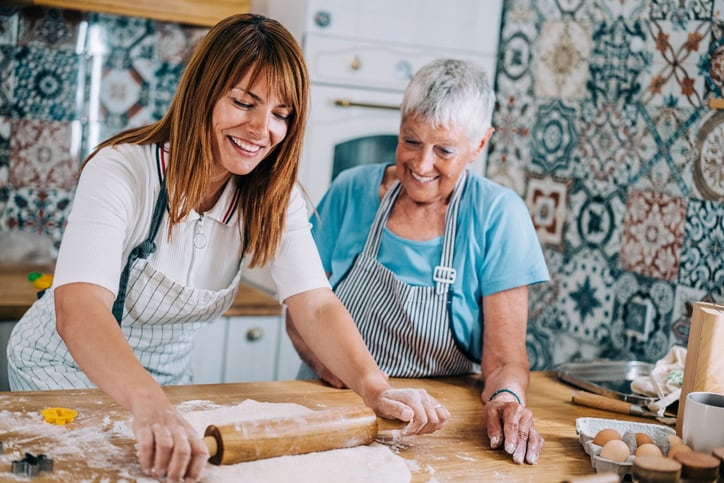It’s not uncommon to associate TikTok with dancing and singing teens. And while Gen Z still dominates the platform, you might be surprised to hear that 11% of TikTok users are over 50.
Known for its short-form videos, many seniors initially downloaded the video sharing social media app as a way to stay connected with their children and grandchildren during the pandemic lockdown – the time period when it rose to app store stardom.
While entertainment continues to be the main draw, there is an increase in educational and inspirational content with many seniors using TikTok as an outlet for activism, health information, community and even exercise.
Here’s what you need to know about the ways in which TikTok can help you and your older loved one strengthen your mental and physical well-being.
Why are seniors creating TikToks?
Research on older adults as digital content producers is still in its infancy, Malmö University graduate student Ivelina Bibeva’s thesis research provides a first glimpse into the practices of U.S. older adults on TikTok and an analysis identifying key motivations driving their content creation on the platform:
- Civic engagement and political activism.
- Contributing to the community (or, more simply put, sharing wisdom and advice).
- Journaling.
- Having fun.
If you’re wondering how tech-savvy one needs to be to engage in this new social media behemoth, fear not. TikTok is unlike other social media apps and starts serving you a seemingly endless stream of videos one after the other before you even create an account. After you do, the app starts personalizing all content based on your behavior (i.e., what videos you like, comment on, share, watch multiple times or simply scroll by).
5 ways TikTok can help seniors and caregivers boost their health
There have been endless mental health concerns surrounding social media and how much time people of all ages spend “doomscrolling,” or spending an excessive amount of time scrolling through social media without purpose and often engaging in negative news. To curb the negativity and improve the quality of time spent on the platform, here are five strategies anyone can use.
Remember, interacting and engaging — rather than just following — can help users reap the most health benefits from social media.
1. Program your TikTok to fight ageism
According to a November 2020 commentary in Lancet, fighting ageism requires a concerted effort from all stakeholders to:
- Transmit positive messages associated with aging.
- Create an environment of respect, empathy and solidarity towards older adults …
It was hard not to miss viral TikTok videos of seniors dancing, lip-syncing, telling stories from their past (or just showing their expert gardening or cooking skills) – showing the world age is just a number and giving all of us a reason to smile, be inspired, and feel less isolated. The simple scroll through, is what Forbes reporter Jack Rodgers calls “an infinite feed of endorphin-inducing content that triggers a strong sense of unity and belonging within us.” It’s this unity that’s created an outlet for many on TikTok to use their voice for good – raising awareness about issues of importance to them.
Tthe United Nations actually used TikTok to tackle and change how we all think, feel and act towards age and aging. The organization even developed a toolkit encouraging users to create #AWorld4AllAges on social media and spread the word.
Research shows greater community engagement and social participation are associated with better health in old age and much reduced risk of mortality, so your older loved one would do well to initiate their own conversations raising awareness about this important topic.
2. Get practical and expert health care advice
TikTok has also shown itself to be a viable means for getting health information. Many healthcare providers have turned to the platform to educate and dispel myths about COVID-19 to a broad and diverse demographic. However, the demand for more health care–related voices supporting their community of followers (with credible and engaging content) currently outpaces supply.
Caregivers of an older adult who has dementia might like following occupational therapist Teepa Snow, author of “Understanding the Changing Brain: A Positive Approach to Dementia Care,” who uses her account @teepasnow to share quick demonstrations and practical tips for caring for someone with dementia – everything from how to help someone get dressed to how to have better conversations. Many of her videos have gone viral and even been featured on NBC’s “The Today Show.”
3. Find your tribe
“The more that users like and comment on mental illness-related videos, the more often they see mental illness-related videos, and the closer to the mental health community they feel,” explains Lindsay Gallagher in Veritas, Villanova University’s research journal.
You or your older loved one can start “finding your tribe” by following hashtags relevant to your interests and watch it take off from there. Videos are sorted into hashtags with search results directly sorted by likes received per post.
For example, family caregivers have banded together on the app. An analysis of how family caregivers of people with dementia use TikTok was recently presented at the International Conference on Mobile Human-Computer Interaction. Researchers cited the number of people who spoke up in support of music’s beneficial impact on their dementia-affected loved ones under the #DementiaCaregiver hashtag:
- “One creator showed her mother engaging in dance therapy via an online class. She tells her viewers, ‘Thank you to those that recommended this. I haven’t seen her this active in years!’
- “Another creator shares a TikTok of the changes in her father since she started playing music for him. The creator says there was a noticeable change in his mood, sleep and had more ‘better days than bad’.”
- “One creator recommends dancing with ribbon wands while listening to music. She shares that this activity is a good way to practice both large and small movements simultaneously.”
4. Reminisce on “the good old days.”
Many seniors are using TikTok as a video diary of sorts – telling stories from their past, sharing memories and even documenting progressive disorders and disease. The activity of regular journaling, per the University of Rochester Medical Center, is shown to reduce stress, anxiety and depression. If you find yourself or your senior loved one feeling this way, it might be worth giving this a try.
Through @TheKathyProject’s TikToks we learn about her first kiss in the sixth grade (by the one and only Tom Cruise), hear wild tales of her bar-hopping twenties and learn she’s had to move into her parents’ basement since her diagnosis of early onset Alzheimer’s. Her sister, the woman behind the camera, is capturing her journey.
5. Dance and share your talents.
TikTok dance challenge anyone? Consider TikTok your virtual stage. Maybe you have a special talent and can demonstrate it. Consider:
- Playing an instrument.
- Lip-syncing to your favorite song.
- Showing off your garden and give some green-thumb secrets.
- Sharing your family recipes (it’s more authentic coming from the chef themselves).
- Dazzling the TikTok community with your moves.
One of the more appealing aspects of dance – what TikTok’s come to be known for – is that its mood-lifting properties apply to many different demographics. Dancing, which can help improve mental health, even has become its own form of therapy: dance movement therapy (DMT).
That said, no matter how you or your senior loved one use the popular app, the world is your oyster, as they say, and the possibilities are endless.
For help getting started, see the Senior’s Guide to TikTok from ConnectSafety, a nonprofit organization dedicated to educating people about safety, privacy, security and digital wellness.
